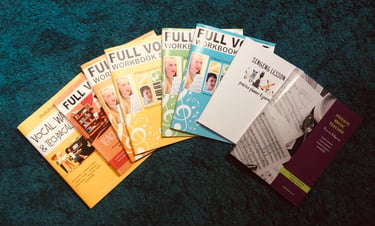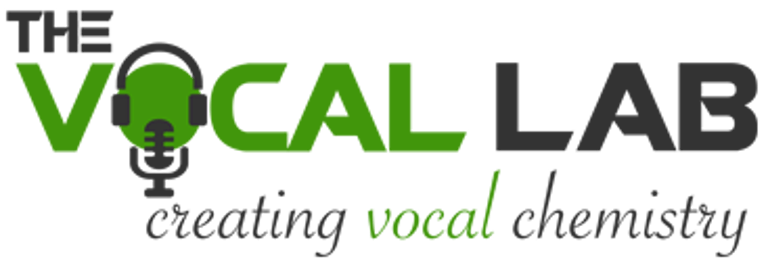Frequently Asked Questions
WHAT DOES A TYPICAL LESSON LOOK LIKE?
Beginners:
Establishing singer's vocal goals, warm-up and foundation in vocal function: voice physiology, how the voice works, posture, breathing and exploring registers, music styles, and songs, finding the songs for singers unique voice type, and then working with the singer's songs of choice.
Intermediate:
Establishing singer’s immediate vocal goals, building upon the fundamentals into a more rigorous training regime, (i.e. strength versus stamina), exploring singing fitness, expanding repertoire (list of songs), developing register continuity and tonal resonance, and building range expansion. Preparation for auditions and/or exams.
Advanced (working artists and performers):
Establishing singer’s immediate vocal needs to prepare for audition purposes or recording, preparation for gigs, or concerts, maintaining vocal health, working on more rigorous warm-ups and vocal hygiene, vocal function, and establishing singing stamina to sustain voice for prolonged singing settings. We offer recommendations on how to approach things differently to reveal qualities and different textures in your voice that may lie undiscovered.
Have a look at the lesson objectives and activities; we might be working on, depending on your current level and ability:
Each lesson is flexible enough to give you what you really need at each particular stage of your training to ensure you get the most from each lesson at The Vocal Lab.
What to bring to my lesson?
Bring your own water bottle or hot drink, one song (or more) that you like to sing or would like to learn how to sing. If you don’t have it, don’t worry, we can find most songs online. If you have no idea what you like, we can help you find the song that suits your voice - and you.
What do you provide?
We provide all the tools (microphone, amp, songs with lyrics on screen, pen and paper and some recorded vocal warm ups, etc..) you might need during your lesson in a warm and friendly environment to build and maintain a healthy singing voice! If you want to work on mic technique, you are welcome to bring your own microphone.
WHAT IS TUITION AND HOW DOES IT WORK?
Annual Tuition Membership
By enrolling in the Annual Tuition Membership, you commit to a 12-month contract that secures a weekly lesson time that are scheduled on the Tuition Calendar and guarantees 38 lessons per year. This flexible plan ensures consistent, regular singing lessons, making it ideal for singers who want manageable tuition payments and reliable scheduling year-round.
The membership operates on a monthly payment plan, with equal payments made on the 1st of each month. This allows you to spread the cost evenly over 12 months, regardless of whether a month has 4 or 5 weeks. Payments remain the same, offering predictable budgeting. If you decide to stop tuition at any given time, I will need a 30 days' written notice so that we can make sure you can attend all your scheduled lessons for that month before stopping your membership.
This rolling membership gives you the flexibility to register at any time during the year—there's no need to wait for the start of a new term or school year.
Key Benefits:
Monthly Payments: Pay the same amount each month for easy budgeting.
Flexible Enrollment: Start lessons at any point during the year, without waiting for a traditional school year to begin.
Rolling 12-Month Commitment: Payments continue for 12 months, with automatic renewal each year.
Ongoing Access: Uninterrupted access to lessons throughout the year.
In addition to scheduled weekly lessons, students will also have access to two exclusive Open Studio Days—workshops and performance opportunities scheduled for the last Saturday in June and the first Saturday in December. These can also be used as make-up sessions for any missed lessons.
If you enrol later in the year, your membership will start on the day you enrol and, lessons will be pro-rated accordingly. Please refer to our Policies for further information.
Have a look at the 2025 Tuition Calendar to view key dates.
Examples:
Vocal Function
How to warm up (body and voice)
Voice physiology (how the voice works)
Correct posture
Gain confidence
Develop vocal control
Reduce vocal strain
Increase vocal range
Improve pitch
Improve tone
Vocal fitness
Work on the songs you love
Improve vocal stamina
Voice production
Stage presence
Voice projection
Microphone technique
Prepare repertoire for audition or gig
Preparation for exams and much more


Basic music theory for our young singers with ‘The Full Voice’ workbooks
Workshops Offered
Join our performance workshops to enhance your singing skills today.
THE VOCAL LAB®
Creating Vocal Chemistry
CONTACT
© 2016-2026 Copyright The Vocal Lab ®, All Rights Reserved
Hours
Mon-Fri 10am-6pm
